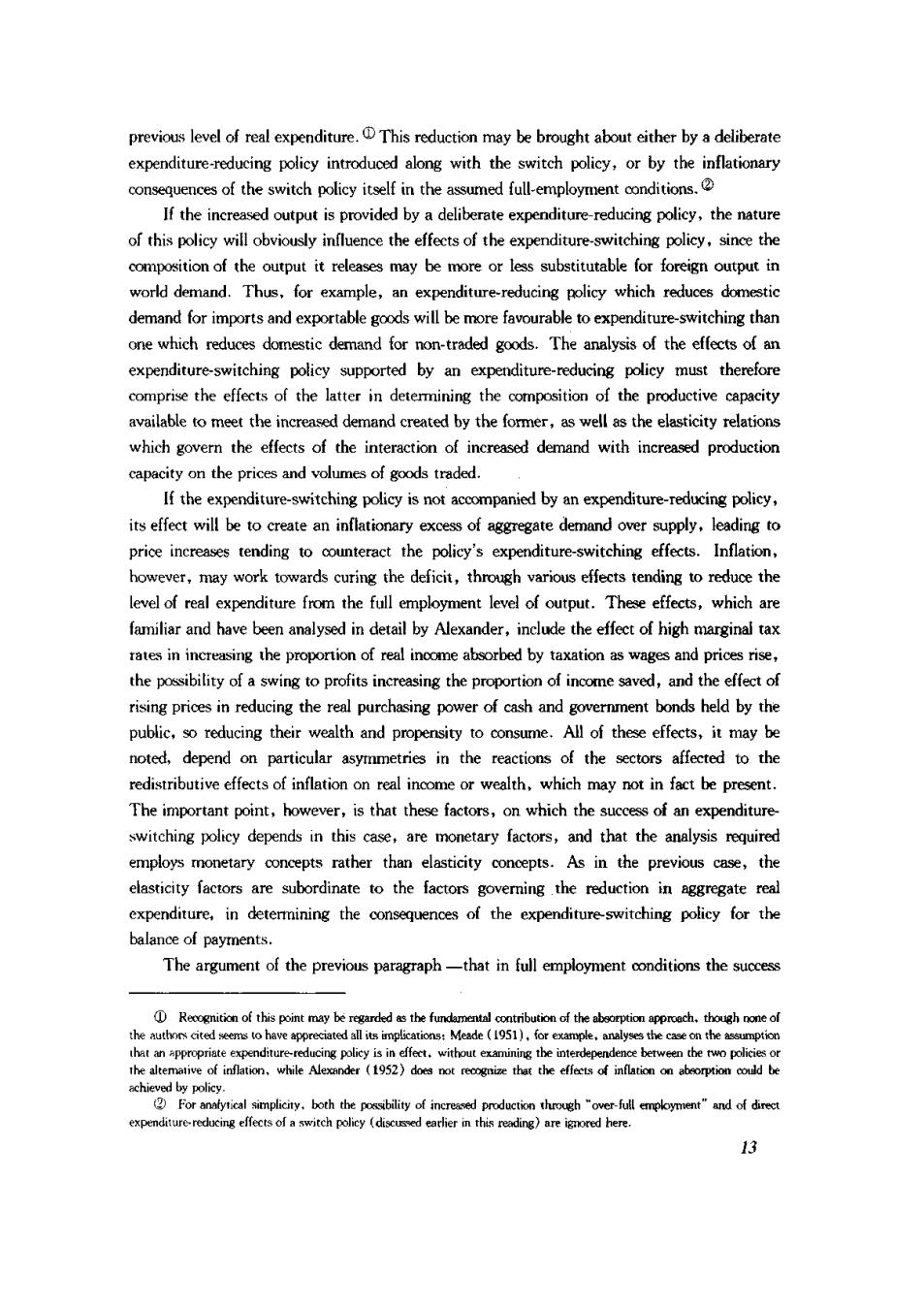正在加载图片...

previous levelof real expenditure.This rduction may bebrought about ither byadeibrte expenditure-reducing policy introduced along with the switch policy,or by the inflationary consequences of the switch policy itself in the assumed full-employment conditions. If the increased output is provided by a deliberate expenditure-reducing policy,the nature of this policy will obviously influence the effects of the expenditure-switching policy.since th composition of the output it releases may be more or less substitutable for foreign output in world demand.Thus.for example,an expenditure-reducing policy which reduces domestic demand for imports and exportable goods will be more favourable to expenditure-switching thar one which reduces domestic demand for non-traded goods.The analysis of the effects of an expenditure-swithing policy upported by an expenditre-reducing plicy must therefore comprise the effects of the latter in determining the composition of the productive capacity available to meet the increased demand created by the former,as well as the elasticity relations which govern the effects of the interaction of increased demand with increased production capacity on the prices and volumes of goods traded. If the expenditure-switching policy is not accompanied by an expenditure-reducing policy, pply.leading o price increases tending to counteract the policy's expenditure-switching effects.Inflation, however,may work towards curing the deficit,through various effects tending to reduce the level of real expenditure from the full employment level of output.These effects,which are familiar and have been analysed in detail by Alexander,include the effect of high marginal tax rates in increasing the proportion of real income absorbed by taxation as wages and prices rise rising prices in reducing the real purchasing power of cash and government bonds held by the public,so reducing their wealth and propensity to consume.All of these effects,it may be noted,depend on particular asymmetries in the reactions of the sectors affected to the redistributive effects of inflation on real income or wealth.which may not in fact be present The important point,however,is that these factors,on which the success of an expenditure switching policy depends in this case,are and that the analysis required employs monetary concepts rather than elasticity concepts.As in the previous case,th elasticity factors are subordinate to the factors governing the reduction in aggregate real diture-switching policy for the balance of payments. The argument of the previous peragraph-that in full employment conditions the success he the in 13